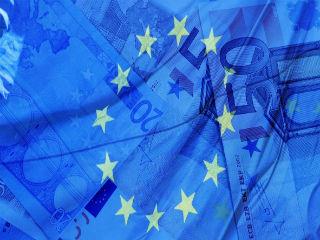Greek Finance minister Yanis Varoufakis said that Greece needs a "new arrangement" in order to meet the country's repayment obligations of around €11.5 billion between June and August.

Shortly after the bailout extension was agreed by the EU finance ministers, Greece indicated it will ask for further financial assistance.
Shortly after the bailout
extension was agreed by the EU finance ministers, Greece indicated it
will ask for further financial assistance.
A sign that the agreed bailout extension is only the beginning of a long
battle between Athens and its international creditors.
Greek
Finance minister Yanis Varoufakis said that Greece needs a "new
arrangement" in order to meet the country's repayment obligations of
around €11.5 billion between June and August.
He was not asking for some of the
country's debt to be written off, saying that Athens has learned that
"haircut is a dirty word.
I've learned that". "Just as we don't
want to hear the word 'troika' anymore, so our creditors don't want to hear the
word haircut", he said, with troika referring to the trio of lenders the
European Commission, the European Central Bank and the International Monetary
Fund, and synonymous for many Greeks with harsh austerity measures by some even
called ‘waterboarding’.
Varoufakis said there were more "intelligent"
options to a debt haircut that could be considered, such as linking credit to
the Greece's economic growth.
He spoke of sovereign bonds whose returns were
tied to Greece's GDP figures: "Then our creditors would also have an
interest in Greece's economy starting to grow again."
Greece received a four-month
extension to its bailout, which was due to run out on 28 February, but only
after much political bad blood had been spilt between Athens on one side and
Germany, the main eurozone creditor, on the other.
Athens was riled by what it
saw as German obstinacy and insistence on following the austerity path, Berlin
by the Greek government's way of negotiating.
Meanwhile, Varoufakis has
already indicated where the battlelines will lie. He said Athens will
prioritise debt repayments to the International Monetary Fund, but that the €6.7bn
bond repayment to the ECB in July and August are "in a different league".
"We
shall have to determine this in association with our partners and the institutions",
he said.” If we had the money we would pay… they know we don’t
have it”.
Eurogroup Chief Jeroen Dijsselbloem suggested that, if
Greece pushed ahead with reforms, it could get a “first disbursement” of the
next tranche of bailout funds.
Also the Spanish Economy Minister Luis de Guindosand
one of the Commission VP’s, Dombrowski, mentioned the possibility of a third
bailout.
Greek Prime Minister Alexis
Tsipras was not amused and reacted “let them forget a third bailout. The Greek
people put an end to bailouts with their vote.”
Indeed the Greek people agreed
with him. A poll published after the political struggles in the Eurozone showed
that 76% of Greeks had a positive view of the Syriza-led government so far,
with two thirds supporting their approach to negotiating with the Eurozone.







